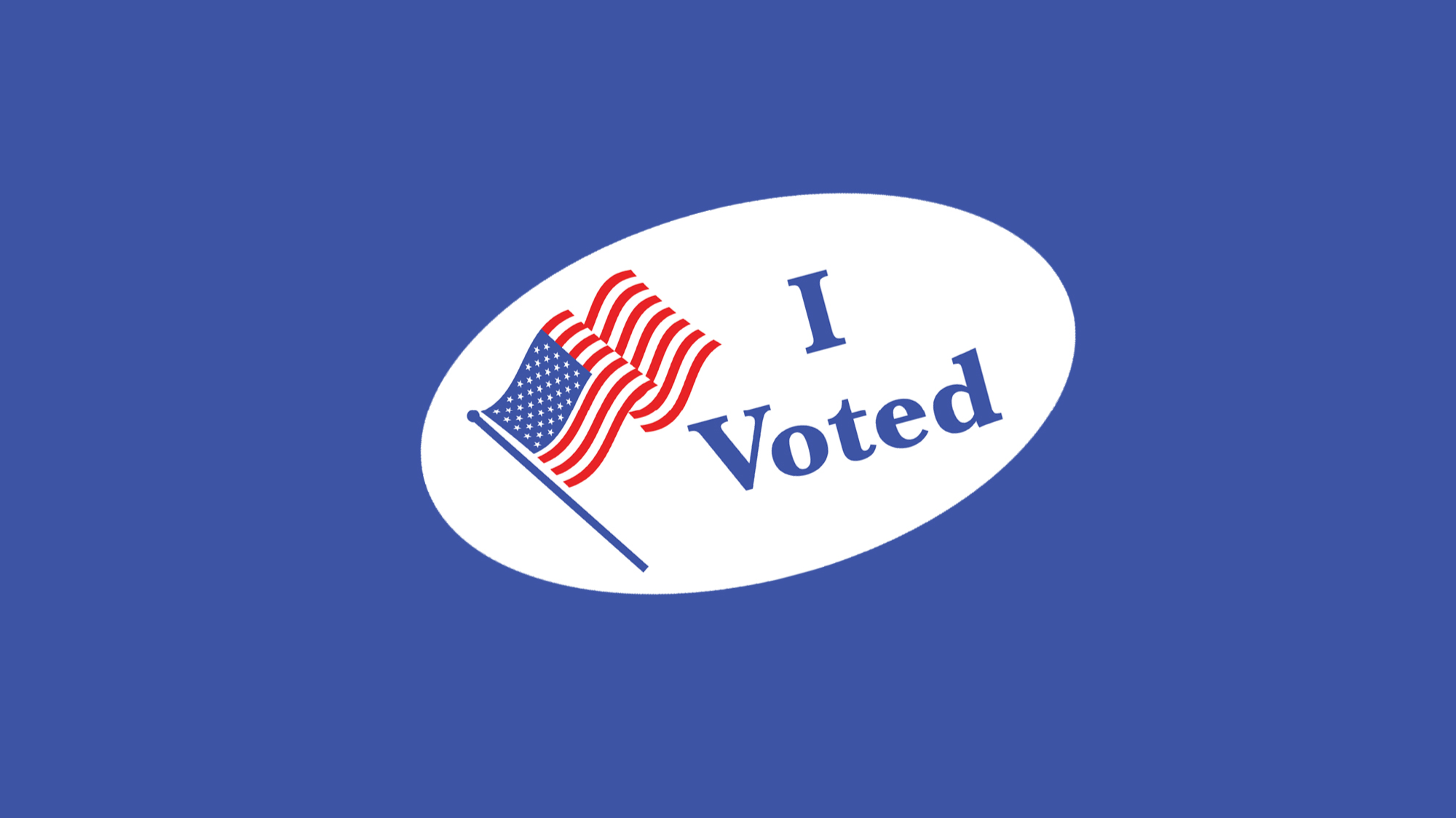Harris’s Best Closing Argument Isn’t Coming From Her
6 min read
This is an edition of The Atlantic Daily, a newsletter that guides you through the biggest stories of the day, helps you discover new ideas, and recommends the best in culture. Sign up for it here.
Samuel L. Jackson strutted out onstage at James R. Hallford Stadium outside Atlanta last night and attempted to lend Kamala Harris some of his lifelong cool: “We’ve heard her favorite curse word is a favorite of mine too!” (Sadly, he restrained himself from saying it—of course you know what it is.)
Harris’s team had curated a star-heavy bill, including Spike Lee, Tyler Perry, Bruce Springsteen, and Barack Obama. Thousands of potential voters had come out in support of Harris, but in the end, the evening felt more like an anti-Trump rally. And although Harris was the headliner, she seemed more like a role-player in an ensemble.
A New York Times/Siena College poll released this morning has Donald Trump and Harris dead-even for the popular vote, at 48 to 48. Up close, when you experience them in a live setting, the two campaigns couldn’t be more different. Trump rallies remain dark, campy spectacles: a little Lee Greenwood, some Village People, then a bunch of dystopian hyperbole and chaotic tangents from an aspiring authoritarian. It’s the same show in a different city, night after night, always with cultlike devotion from the MAGA faithful. Democrats, by contrast, keep trying to rekindle that singular Obama essence from 16 years ago, with intermittent success. Harris has found her rallying cry with “We’re not going back!” and she often talks about the future. But the core product being offered by her team might best be described as nostalgia for the pre-Trump era.
You could hear it in the soundtrack last night: Earth, Wind & Fire’s “September,” Marvin Gaye’s “Got to Give It Up,” Stevie Wonder’s “Sir Duke,” plus some Outkast for the local Georgia crowd. It all amounted to a balmy, tranquil evening that unfolded as the sun went down—but it wasn’t fiery. In place of apparel with aggressive slogans, I passed a guy in a shirt that said #PledgeEquality, and another guy in a hat that said, simply, Vibes. I saw people making hearts with their hands and snapping in approval during certain speeches (as opposed to the cadre of Trump supporters hurling middle fingers during his rallies). Springsteen played three songs on acoustic guitar, including a Bob Dylan–esque version of his synth-pop hit “Dancing in the Dark.” All of this was inoffensive—like Jackson refusing to say “motherfucker.” On the one hand, you could say this pivot to “normalcy” is a calculated rejection of Trumpian bombast and bluster, and that’s why, in theory, it should work. On the other hand, it was a little boring.
I was shocked to see some attendees begin to filter out several minutes into Harris’s speech. She touched on the big themes of her campaign—protecting Americans’ rights and individual freedom—but she also perhaps spent a bit too much time discussing plans and policies. To be sure, this may have come in response to critics who have said her campaign is short on substance and specifics. Or maybe it was an act of caution. But the reality is that people pack into a football stadium because they want to roar, not necessarily to hear proposals.
Harris had the unenviable task of following Obama, one of the most gifted political orators alive. With his sleeves rolled up—no tie, no jacket—he was as comfortable and engaging as ever. But he also seemed pissed. As I observed in Pennsylvania recently, he has zeroed in on attacking Trump, whose potential reelection would be a rebuke of all that Obamaism stands for: optimism, and a steadfast belief in the American dream. (It was also striking to witness how much Obama has influenced the generation of Democratic leaders below him; in his remarks, Jon Ossoff, the 37-year-old Georgia senator, mimicked Obama’s inflection, his faraway stare, his knowing half-smile, and his call-and-response method.)
But the most effective speaker of the night, and possibly of the entire Harris campaign so far, was the entertainment mogul Tyler Perry. He connected with the crowd by telling his life story with raw, concrete anecdotes: hiding from his landlord, sleeping in his car or in an extended-stay hotel, dealing with repo men. He spoke of his personal journey of learning the truth about Trump the charlatan, Trump the racist. He carved a clear arc that ended with what a Harris presidency would mean to others like him. He also delivered the line of the year: “It was so important for me to stand with a candidate who understands that we, as America—we are a quilt. And I could never stand with a candidate who wants America to be a sheet.” Perry’s speech sounded like none other I’ve heard over the past two years of campaign-trail events, and that’s why it hit.
Tonight, Harris will host another large-scale rally, this time in Houston, where she’ll be joined by a native Houstonian and one of the biggest stars on the planet: Beyoncé. Tomorrow, Harris will head to Michigan and campaign with one of her party’s most popular figures, former First Lady Michelle Obama. Harris may be leaving some of the most memorable and compelling closing arguments to her surrogates, and that may not matter to many voters. In the end, though, overly cautious campaigning doesn’t necessarily inspire confidence among those who are undecided. Harris’s messaging against Donald Trump has merit, but the ideas that penetrate deepest are those that strike at one’s personal core—such as the stories that Perry told last night. With 11 days left, it’s unclear whether Harris feels comfortable enough to go down that path.
Related:
- “There’s people that are absolutely ready to take on a civil war.”
- This election is no West Wing reunion.
Here are four new stories from The Atlantic:
- The Democrats’ Hail Mary
- “Stop counting votes, or we’re going to murder your children.”
- The most opinionated man in America
- Trump is being very honest about one thing.
Today’s News
- Hackers associated with the Chinese government targeted the phone data of Donald Trump, Senator J. D. Vance, and senior Biden-administration officials, according to CNN.
- For the first time since the 1980s, the Washington Post editorial board will not endorse a presidential candidate and will stop endorsing candidates in future elections, per a decision made by the newspaper’s owner, Jeff Bezos.
- President Joe Biden formally apologized for the “sin” of government-run boarding schools that forcibly removed many Native American children from their homes.
Dispatches
- The Books Briefing: Political autobiographies are usually dreck, but some rise above their genre, Emma Sarappo writes.
- Atlantic Intelligence: Matteo Wong writes about The Atlantic’s recent story on the schools without ChatGPT plagiarism.
Explore all of our newsletters here.
Evening Read

Election Anxiety Is Telling You Something
By Shayla Love
Type election anxiety into Google, and you’ll find dozens of articles instructing you to focus on aspects of life outside of politics, to spend less time watching the news, or to use relaxation techniques such as breathing exercises to subdue the negative feelings.
But there’s another way to think about election stress: A big event should prompt big feelings.
Read the full article.
More From The Atlantic
- The death of American exceptionalism
- “Okay, I will join the Marines.”
- Taiwan has a Trump problem.
Culture Break

Learn to share. Americans are hoarding their friends—and the practice may be making people feel more lonely, Faith Hill writes.
Explore. These farmers are subletting their fields to become much-needed wetlands for birds, Natalia Mesa writes.
Play our daily crossword.
Stephanie Bai contributed to this newsletter.
When you buy a book using a link in this newsletter, we receive a commission. Thank you for supporting The Atlantic.



